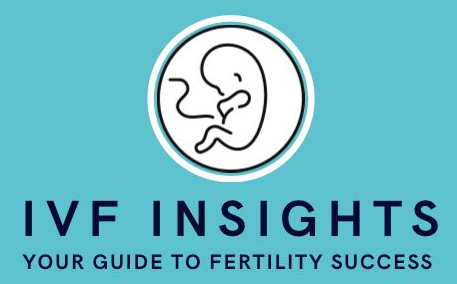
Uncovering the Causes of Infertility: A Comprehensive Guide
Infertility can be a complex and emotionally taxing journey, and understanding the common causes behind it is a crucial step towards finding solutions. In this section, we will unravel the mystery behind some of the most prevalent factors contributing to infertility in both men and women.
Female Infertility Causes
Ovulatory Disorders:
Irregular or absent ovulation is a leading cause of female infertility. Conditions such as polycystic ovary syndrome (PCOS), hypothalamic dysfunction, and premature ovarian insufficiency can disrupt the regular release of eggs.
Age-Related Decline:
As women age, their fertility naturally decreases. The quantity and quality of eggs diminish, making it more challenging to conceive, especially after the age of 35.
Uterine Abnormalities:
Structural issues in the uterus, such as fibroids, polyps, or a septum, can interfere with implantation and pregnancy.
Tubal Factors: Blockages or damage to the fallopian tubes, often due to infections like PID or previous surgeries, can prevent the egg from meeting sperm, leading to infertility.
Endometriosis:
This condition occurs when tissue similar to the lining of the uterus grows outside the uterus. It can cause inflammation, scarring, and adhesions that affect fertility.
Autoimmune Disorders:
In some cases, the body's immune system may mistakenly target and damage reproductive organs, impacting fertility.
You Might Also Like: Age and Infertility: Key Facts and Insights
Male Infertility Causes:
Sperm Abnormalities:
Abnormal sperm count, poor motility (movement), and morphological issues can significantly impact male fertility. These abnormalities can result from various factors, including genetic conditions, infections, or lifestyle choices.
Varicoceles:
Enlarged veins in the scrotum can lead to increased testicular temperature, which hampers sperm production and quality.
Ejaculatory Disorders:
Conditions that affect the ability to ejaculate or cause retrograde ejaculation (where semen enters the bladder instead of exiting the body) can hinder conception.
Hormonal Imbalances:
Hormone disorders, such as hypogonadism or thyroid problems, can disrupt the production of sperm and testosterone, affecting fertility.
Testicular Factors:
Undescended testicles, testicular injuries, or surgeries can impact sperm production and function.
Lifestyle Factors:
Smoking, excessive alcohol consumption, drug use, obesity, and exposure to environmental toxins can all contribute to male infertility.

Lifestyle and Habits that Can Impact Infertility
The road to parenthood is influenced by numerous factors, some of which are within our control. Lifestyle and habits play a significant role in fertility, and understanding how they can impact your ability to conceive is crucial. In this section, we will explore key lifestyle factors that can affect fertility for both men and women.
Female Lifestyle Factors:
Weight and Body Mass Index (BMI): Maintaining a healthy weight is essential for fertility. Being underweight or overweight can disrupt hormonal balance and interfere with ovulation. Achieving a healthy BMI can improve your chances of conceiving.
Diet and Nutrition: A well-balanced diet rich in fruits, vegetables, whole grains, and lean proteins provides essential nutrients that support reproductive health. Conversely, diets high in processed foods, sugar, and unhealthy fats may negatively impact fertility.
Exercise: Regular physical activity is beneficial for overall health, but excessive exercise, especially when combined with low body fat, can disrupt menstrual cycles and ovulation. Finding a balance that works for you is key.
Smoking: Smoking is harmful to fertility for several reasons. It can damage eggs, disrupt hormone production, and reduce ovarian reserve. If you smoke and are trying to conceive, quitting is highly recommended.
Alcohol and Caffeine: Excessive alcohol and caffeine consumption can interfere with fertility. It's advisable to limit alcohol intake and moderate caffeine consumption while trying to conceive.
Male Lifestyle Factors:
Smoking and Substance Use: Smoking, as well as the use of recreational drugs and excessive alcohol consumption, can reduce sperm count and motility, impairing male fertility.
Diet and Nutrition: A nutritious diet rich in antioxidants, vitamins, and minerals can support healthy sperm production. Conversely, diets high in processed foods and trans fats may negatively impact sperm quality.
Heat Exposure: Prolonged exposure to high temperatures, such as hot tubs or saunas, can raise scrotal temperatures and harm sperm production. It's best to avoid excessive heat in the genital area.
Tight Underwear: Wearing tight-fitting underwear can increase scrotal temperature and potentially reduce sperm quality. Opting for looser-fitting underwear can help maintain a cooler environment.
Stress: Chronic stress can lead to hormonal imbalances that affect sperm production. Managing stress through relaxation techniques, exercise, and mindfulness can be beneficial.
Laptop and Mobile Phone Use: Prolonged use of laptops on the lap or keeping mobile phones in pockets close to the groin area may expose the testes to excess heat, potentially impacting sperm health.
If you and your partner are struggling to conceive, it's essential to address any modifiable factors in your lifestyle and habits. Additionally, seeking guidance from a fertility specialist can help identify and address any underlying issues that may be hindering your journey to parenthood.



